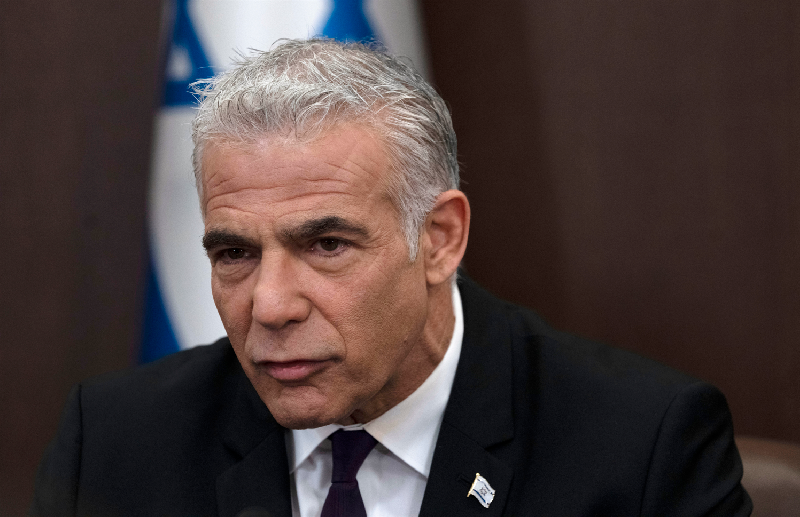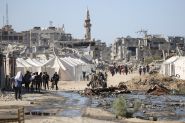- Home
- Middle East
- Israeli Opposition Condemns Press Freedom Threats at Emergency Meeting

Israeli opposition leader, Yair Lapid ©AFP
Israeli opposition leaders and prominent media figures warned at an emergency meeting on Wednesday that government reform proposals were threatening press freedom in the country.
"In the years since this government was formed, Israel has fallen 15 places in the freedom of speech index," opposition leader and former prime minister Yair Lapid said in the meeting, which was held in the Israeli parliament.
He was referring to Israel's rating on the annual Reporters Without Borders press freedom index. Israel is currently ranked 101 out of 180 countries, comparing to 86 in 2022 before Prime Minister Benjamin Netanyahu formed his coalition government.
Lapid, himself a former journalist, said the current government did not want a balanced media landscape, but rather, "it wants a media like in Hungary, like in Russia -- restrained, frightened, submissive, shallow."
In a move criticised by press watchdog organisations and several Western countries, the Israeli government voted last May to shutter Qatari media outlet Al Jazeera.
The government has long viewed the station as a mouthpiece for Hamas, the Palestinian militant group that attacked southern Israel on October 7, 2023.
However, steps taken in recent months, including a bill to grant the government greater control over television ratings data and legislation aimed at privatising the country's public broadcasting corporation, have focused more on Israeli media.
Last week, the government also declared a halt to state advertising in and subscriptions to the left-wing newspaper, Haaretz, after critical comments reportedly made by its publisher, Amos Shocken.
Michal Assulin, music editor at the public broadcaster, Kan, said in the meeting on Wednesday that the institution "is the home of Israeli culture".
"An attack on Kan is an attack on freedom of expression and democracy," she said.
Oded Ben-Ami, a presenter for Israel's highest-rated news channel, Channel 12, said the media was "the stethoscope of a democratic state".
"If you harm us, this state that is so sick, so sad, so miserable, it won't be able to survive," he said.
"We must stop this wave. We must stop the attempts to harm the free press because without a free press, we have no chance of existing."
Minister of Communications Shlomo Kahri, who arrived halfway through the event, denied the government was attempting to clamp down on press freedom.
He said its goal was to create diversity by opening the media market to greater competition.
With AFP
Read more



Comments